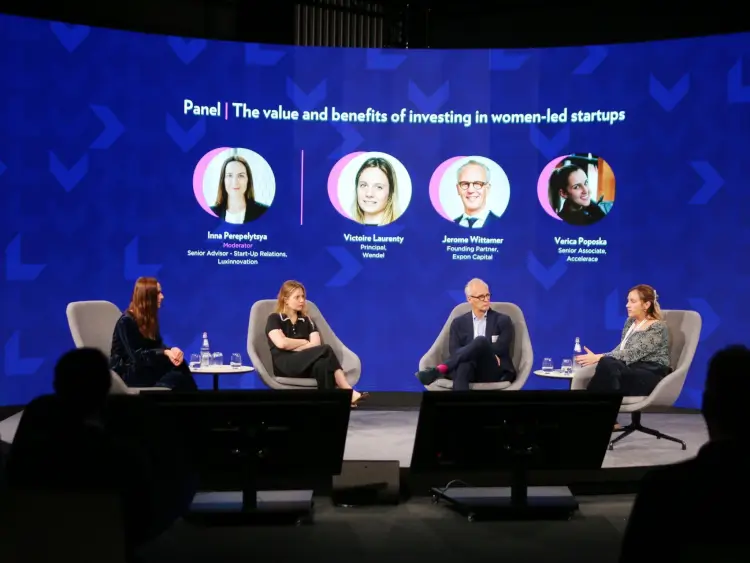


Women-led companies are underfunded, but does this have anything to do with gender? Fund representatives from three countries responded at the Luxembourg Venture Days.
 Abigail Okorodus
Abigail Okorodus
“Only around 2% of VC funding goes to women led startups, yet they yield twice the ROI compared to male-led startups,” stated Inna Perepelytsya, Senior Advisor Start up Acceleration at Luxinnovation, and moderator of the panel on the value of investing in women-led startups at the Luxembourg Venture Days from 16 to 17 October.
What may be less well-known are the reasons behind these figures, the rationale for investment choices, and whether gender plays a role in these decisions. Victoire Laurenty, Principal at the Wendel Group in Paris, Jerome Wittamer, Managing Partner at Expon Capital in Luxembourg, and Verica Poposka, Senior Associate at Accelerace in Copenhagen, provided insights based on “real cases” of supporting women-led ventures within their respective portfolios.
"There are about 30% of female-led startups under Accelerace and its supported acceleration programmes. And I would be honest, we do not have any specific criteria for female-led startups, and that is because of very clear reasons: venture capital operates on the basis of return on investment... We are very much looking at performance and the market, so not much on the gender," stated Verica Poposka, Senior Associate at Accelerace.
The Denmark-based pre-seed investor has been active since 2008. Their portfolio includes companies like review platform Trustpilot and document generation solution Templafy. DreamPlan, a self-service holistic financial planning platform for retail customers, is an example of a female-led startup in its portfolio.
We are very much looking at performance and the market, so not much on the gender.
Verica Poposka, Accelerace
HelloBetter, pioneer in digital mental health research, and part of the Expon Capital’s investment portfolio is another example of a company with two female co-founders. “We invested because they have a very wide portfolio of therapeutic solutions backed by about 34 clinical trials, which is the highest number worldwide. I think it is also one of our best performing firms in our scaleup portfolio,” explained Mr Wittamer. “It never came up in our discussion that they were females, we were just very impressed by the quality of the research.”
Bias exists in various contexts and is acknowledged to play a role in the investment world. “GPs (general partners – manage funds) tend to repeat the success they’ve seen,” highlighted Ms Laurenty. “You see what works and what doesn't work, and you tend to replicate the things that work when you are an investor. Today, the things that ‘work’ are rocket internet guys, super good in execution, not researchers, and not women, most of the time. I think there is a strong bias from GPs, not because they don't like women, but because they want to replicate what worked. But this is improving very fast. When we see more women becoming CEOs, this would make it improve faster,” she added.
Personally, I love the conversation with female founders because of their transparency.
Jerome Wittamer, Expon Capital
Interestingly however, a positive bias towards female-led startups has emerged in recent years and could work to the benefit of women founders in some cases. “To give you example, in Denmark, we have a type of fund of funds investing in most of the VCs as an LP (limited partner - mainly invests), and they require diversity in the portfolio. They also announced this year that they will not invest in any VC if there is no female partner on board… this is where we begin to see this positive bias. There are more programmes, in that sense, and more options to access to these funds,” noted Ms Poposka.
Mr Wittamer pointed out a cognitive bias among investors, where first impressions could sometimes overshadow deeper evaluations. He advised that VCs must look beyond this - especially in pitching settings where male founders often appear to be more assertive - and recognise the nuanced strengths of female founders. “Personally, I love the conversation with female founders because of their transparency,” he mentioned as an example.
Throughout the panel, several ideas were shared on strategies and affirmative actions to enhance the representation of women and to gradually change the investment narrative. Everyone has a role to play in this, society at large, investors, and women themselves.
Here are some key points of the panellists.